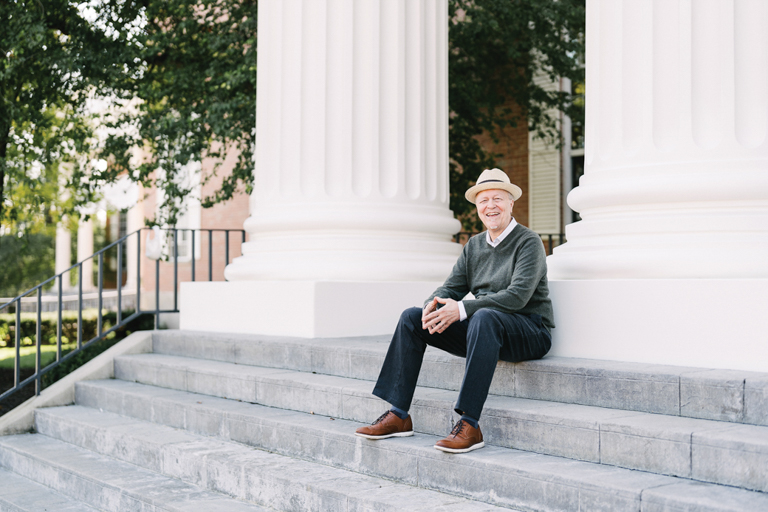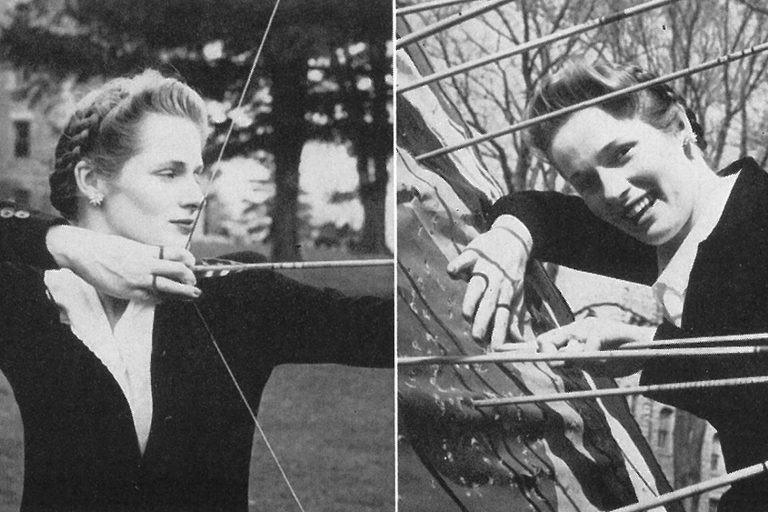Technology for the Common Good
How Wheaton graduates from a range of fields of study use technology to benefit society
Words: Liuan Chen Huska ’09
Photos: Courtesy of Alumni
From tech giants to startups, from missions to government, Wheaton graduates are leveraging technology for the common good in ways as diverse as their fields of study. Some offer their tech expertise at mission-driven organizations. Others approach technology from human-centered, values-driven, and sustainable perspectives. What these alumni have in common is a wide-ranging curiosity about God’s world and an expansive vision of Christ’s kingdom. They also share the agility, supported by a Wheaton education, to toggle from the details to the big picture and back, from one discipline to another, driven by a desire to see humans and the rest of creation flourish.
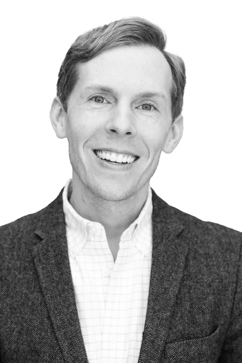
Steven Dziedzic ’06
STEVEN DZIEDZIC ’06
Chief Product Officer, Talkspace
Communication
Since Steven Dziedzic launched his first tech startup in 2010, he has learned to focus on values-aligned technology. He offers this caution to other startup founders he mentors: “If the way your product drives value for its users isn’t aligned with how you make money, over time, it can ultimately corrupt the product.” Successful and missional technology, Dziedzic added, must pair user benefit with company profit.
In 2017, Dziedzic launched the app Lasting, which helps couples maintain and heal their relationships. The company was recently acquired by Talkspace, where Dziedzic now works as chief product officer. Talkspace offers virtual therapy and is a covered benefit for 110 million people in the United States. Dziedzic’s goal is to facilitate real human connections and make therapy dramatically more accessible by lowering cost barriers and matching patients with suitable providers.
The ability to consider the long-term effects of any given technology in light of God’s intentions for humanity is something a Christian liberal arts education taught him well, Dziedzic said. “It’s maybe the best thing Wheaton’s given me while working at a company serving people at scale.

Alexandria Kuo ’17
ALEXANDRIA KUO ’17
Senior Business Development Manager, Roblox
Political Science, Communication
“We can’t deny that new technologies will emerge,” said Alexandria Kuo, “whether we actively engage with them or not.” Kuo recently started a role managing strategic partnerships at Roblox, a social gaming platform that attracts over 65 million daily active users. The company aims to “connect billions of users to build friendships,” Kuo said.
At Wheaton, Kuo gained the curiosity and openness to explore and understand various disciplines beyond her immediate work. This curiosity led her into the tech space after graduation, working at Uber and Google before her current role at Roblox. Kuo also credits her four years in Student Government at Wheaton, including serving as senior class president, for giving her leadership experience and foundational skills that translated to her career.
In our era of unprecedented tech expansion, Kuo believes that Christ-followers should engage in these innovations proactively. “We need to be at the forefront, building the future with discernment.” Kuo sees her own ministry dovetailing with her company’s mission: “creating a platform that encourages innovation,” Kuo said, “all the while upholding strong ethical values and being purposeful in our approach.”

Rebekah Cha ’20
REBEKAH CHA ’20
Team Lead for People Operations, Vaco Onsite at Google
International Relations, History
“It’s not about seeing results. It’s about being faithful.” Rebekah Cha jotted down this phrase from a first-year class at Wheaton College. It has guided her in the years since graduation, moving from an entry-level to upper-management position at Vaco, a third-party service provider for Google.
Cha oversees a team of content reviewers and language experts who rate and produce advertisements according to Google’s legal guidelines, including moral and ethical standards. Still early in her career, Cha doesn’t see this work as her long-term trajectory. However, she is able to apply her training in international relations and her cross-cultural background to managing team members and communicating with stakeholders across the globe.
When Cha started at Vaco, she thought she would need to rely on her technical skills to move up in the company. But she found that exemplifying patience, diligence, and kindness—the kind of personal integrity that Wheaton cultivated in her—has brought her further. “As simple as it may seem, it got really hard at one point,” Cha said. “My character was being trained in the most private moments, talking with an employee one-on-one or when I’m super stressed and frustrated.” That, for Cha, has been the most practical application of living out her faith at work.
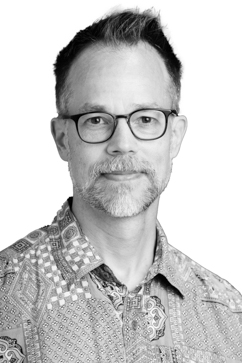
Joel Raedeke ’93
JOEL RAEDEKE ’93
Chief Technology and Data Science Officer, Broadspire
Psychology, Philosophy
Joel Raedeke has led his company, Broadspire, which focuses on risk management, on what can be called a digital transformation. Throughout the process, Raedeke has been careful to remember that his business’s core aim is to bring value to people. “While technology is a core tool, people are at the heart of the business,” Raedeke said. He has found organic gardening to be a helpful analogy. The teams and foundational capabilities are the rich soil in which the product teams evolve and grow value for customers.
Raedeke deeply grounds software evolution in the people it serves. “Often our software development starts with user experience research, which is grounded in anthropology,” Raedeke said. “This customer or user is trying to accomplish something. They’re not trying to click buttons on a computer. How do you make software that enables their objective and doesn’t get in the way of what they’re trying to do?” Raedeke studied philosophy and psychology at Wheaton. “What is this person saying, what are they meaning, what’s going on in their heart, mind, experience?” These questions, which Raedeke asked in both his Wheaton classes and relationships, also serve him well in his current role.
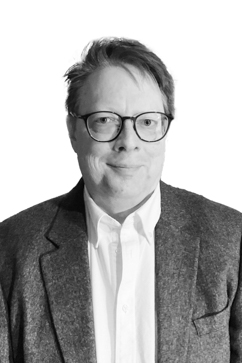
Bruce Knowlton ’85
BRUCE KNOWLTON ’85
Client Services Manager, Leepfrog Technologies
Social Sciences
In the fall of 1981, Bruce Knowlton was a freshman sitting in theology professor Dr. Herbert Jacobsen’s Christian Thought class, learning about Christian humanism. “Dr. Jacobsen invited us to think about how to make technologies more human,” Knowlton said. “Office layouts, city planning—are they humanly scaled? Do they respect the full image of God in our fellow humans? Do they express our love for them?”
These questions continue to animate Knowlton’s work today. At the education company Leepfrog Technologies, Knowlton translates the needs of clients—usually university registrars’ offices—to internal software developers who help streamline the course registration process. His current project helps level the playing field so students can access the courses they need to complete their degrees and make maximum academic progress. Knowlton previously worked at Wheaton College in digital content and education systems for 25 years.
What sticks with Knowlton is the framework that Wheaton provided. “Anything and everything can have ultimate importance in our relation to God,” he said. “There’s no area of human endeavor that doesn’t have a whole lot of interesting questions around it about how we can do this in a way that glorifies God.”
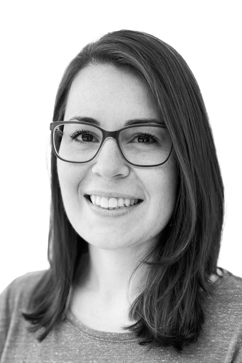
Rachel Lamb ’12
RACHEL LAMB ’12
Senior Climate Advisor, Maryland Department of the Environment
Environmental Studies, International Relations
Rachel Lamb entered Wheaton with a love for hiking, camping, and national parks, as well as a longing to pursue a career around environmental stewardship. Today, with a Ph.D. in geographical sciences from the University of Maryland, she uses cutting-edge modeling and remote sensing technologies to help the State of Maryland achieve its carbon emissions reduction goals. For her dissertation, Lamb used GIS (geographic information systems) and remote sensing data to understand how trees and forests in the United States are changing: how that could affect and be affected by ongoing climate change. She sees her work as a concrete way to love global neighbors who are impacted by climate change.
For Lamb, working with technology has always been application-oriented. “How can I use this tool, this new way of looking at the world, to better understand the problem and devise new, innovative solutions to address it?” she asks. Every day, she thinks about how to bring the latest research, including a new “spatial way of looking at the world” to bear on policy decisions, considering not only science, but also economics, politics, and global factors. “Wheaton wasn’t training me to be an expert at forest carbon,” Lamb said. “But it started my journey in being a systematic, holistic thinker. It gave me a framework to understand the things that matter and why they matter.”
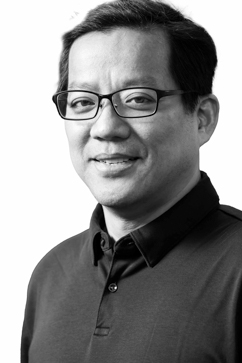
Timothy Su M.A. ’02
TIMOTHY SU M.A. ’02
Chief Information Officer, Partnership to End Addiction
Clinical Psychology
Timothy Su’s life has been split between social and technological work. Su worked in computer assembly and repair in high school but studied psychology and sociology in college. Building on his undergraduate experience, Wheaton’s clinical psychology master’s program taught Su the value of relationship skills. “You can be a great musician or great programmer, but you also need to learn how to interact well with people,” Su said.
After working as a therapist in Singapore where his wife, Ann Chua Su M.A. ’02, is from, their family returned to the States in 2006 and Su switched primarily to tech work. He joined the Partnership to End Addiction, a think tank focused on drug addiction issues in the country, where he currently serves as the chief information officer. Su runs the organization’s internal tech infrastructure, including cybersecurity. “My job is to help people do their job and do it more efficiently through technology,” Su said. While he finds meaning in his Monday-to-Friday work, Su’s higher calling is helping people know Christ. He and his family are fully committed to serving in their local church. In the complex world of New York City, Su aims to be the person “who is kind, gracious, and a blessing to others.”
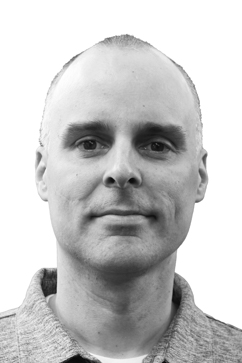
Aaron Hemphill ’99
AARON HEMPHILL ’99
Literacy Apps Development, SIL International
Spanish, Biblical and Theological Studies
Before Aaron Hemphill developed a literacy skills app for minority language speakers, he worked in Guerrero, Mexico, in Bible translation. Working with speakers of the indigenous language Me’phaa, he saw children starting school in Spanish, a language they didn’t speak at home, which immediately put them at a disadvantage. “All over the world, children are expected to begin their school experience in an unknown language,” Hemphill said. “We just assume that the issues are going to work themselves out, but they don’t.”
The app, Alpha Tiles, is now available in 59 languages and teaches children basic literacy skills—like matching sounds to symbols—in their home language. This gives them a positive first learning experience to then translate to their school career, bridging the privilege gap between majority and minority language speakers. Hemphill doesn’t think he would have developed this solution without the cross-disciplinary, incarnational approach he learned at Wheaton. A Christian liberal arts education taught him to step into complex situations and ask big questions. “We were not extracting a project specification that we would hand off to the people who were trying to create the solution,” he said. “The people identifying the problem and the people trying to help were in a room together for years and years. That really increased mutual understanding.”
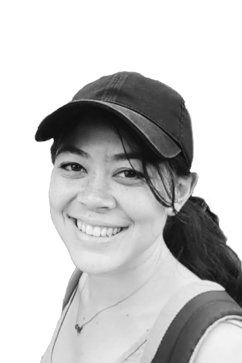
Sunita Yee ’09
SUNITA YEE ’09
Service Design Manager, Accenture Song
Communication
While developers focus on the “how” of technology, Sunita Yee’s work asks a broader question: “How can we create good customer experiences, and what technology is needed to support this?” Yee works with clients of the consulting firm Accenture Song to research and design apps, websites, and other digital platforms so they can best serve customer needs. She and her team conduct interviews, diary studies, ethnographic fieldwork, and co-creation workshops with clients to understand the context in which client products will be used, and customers’ goals in using them.
Based in Thailand, Yee’s clients range from supermarkets to banks to real estate. Designing technology does run the risk of perpetuating patterns and design that center profit over human needs, Yee said. But she believes the best designs meet business needs while also benefiting customers. “Technology is a tool that should hopefully make our day-to-day lives better,” she said.
Yee’s time at Wheaton equipped her to better understand people and the frameworks behind the values she and others hold. “A liberal arts education allowed me to develop a range of interests that I’m able to apply on a daily basis, from ethnographic work to social psychology,” Yee said. “Studying at Wheaton became a way to explore how to embody my values, particularly wholeness, a positive version of peace, and reconciliation.”
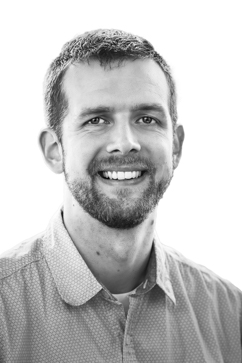
Caleb White ’11
CALEB WHITE ’11
Software Developer Team Lead, Epic
Computer Science, German
Caleb White knew he wanted to develop software not just for entertaining people, but for a purpose. At Epic, where he has worked since graduating from Wheaton, White develops healthcare software. Although many people are familiar with MyChart, a medical records application for patients, White has also worked on a range of behind-the-scenes software to make healthcare more seamless for patients and coordinate patient records across multiple health systems. White’s current project involves translating the MyChart software into more languages and improving healthcare access for patients who don’t speak the same language as their clinicians.
“All people are made in God’s image, and their culture and language are a part of that,” White said. “My work in large part is to ensure people are treated with dignity no matter who they are.” White defines success as when the software is so intuitive to use that it allows providers to spend more time with patients to determine the best treatment plan rather than get held up by confusing technology.
At Wheaton, White developed a posture of ongoing learning which he carries into his work today. “There’s so much that you don’t know,” White said. “Really being able to recognize what you don’t know instead of making assumptions can go a long way toward learning, leaning on those who do know a field, and becoming an expert yourself.”
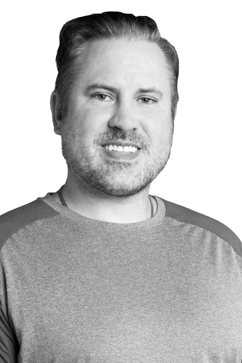
Justin Adams ’05
JUSTIN ADAMS ’05
Co-Founder and CEO, Aiwyn
Economics
Although accountants are trained to do high-level thinking and mathematics, more than half their time on average is spent doing repetitive, rote tasks, like entering numbers into databases. “God didn’t create humans to be data movers,” said Justin Adams. As a mentor for Praxis Labs, an incubator for redemptive entrepreneurship, Adams helps others think through what it means to not just avoid exploitation or even operate ethically, but to build businesses that help people thrive. His company, Aiwyn, uses artificial intelligence (AI) to automate back-end accounting tasks, freeing people to apply their best skills to their work.
Adams sees AI as another tool that can be used for good or evil (assuming that machines don’t reach humanlike intelligence, he said, which would be another conversation). “It’s important for Christians to embrace and understand it to have credibility in these conversations,” he said.
AI has the potential to make some jobs obsolete, and Adams believes this is one reason why a Wheaton education is particularly valuable. “As things become more specialized and technical, the liberal arts framework is even more important,” he said. “What you learn may get outdated quickly. What will last is learning how to think critically but in redemptive ways.”
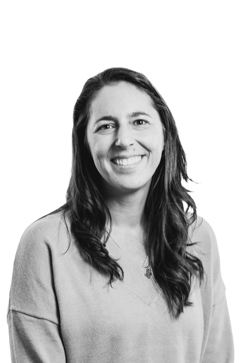
Valerie Broucek ’99
VALERIE BROUCEK ’99
UX/UI Design Director, Christianity Today
Archaeology
Valerie Broucek works on user experience and user interface for the magazine Christianity Today, using data from user feedback and analytics to design websites that are both pleasing and functional. From her home office in North Carolina, her work allows the ministry to reach millions of global readers with biblical and balanced Christian journalism. “When I think about the reach of the websites, it’s humbling,” Broucek said. “It’s a huge responsibility.”
Broucek spent an entire sophomore semester at Wheaton’s HoneyRock Center for Leadership Development studying classic disciplines of the Christian faith. Service became a driving force in her life, manifesting in her transition to the fledgling internet field after graduation. “Tech—and design, for that matter—is a behind-the-scenes job, and it’s done in service to others,” Broucek said.
Broucek sees her role at Christianity Today as the visual, practical fulfillment of the magazine’s mission, serving Christ’s kingdom. “My team brings CT’s mission to everyone. We put it out there in the world.” She added, “Everything is so divisive these days. There really needs to be a place that’s balanced and in the middle. We aren’t going to be touting one political view or another, but being Christ-centered and speaking the truth in love.”
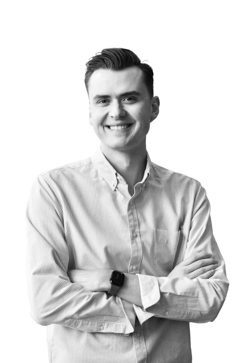
Peter Court ’13
PETER COURT ’13
CEO and Co-Founder, Tether
Political Science
Years after Peter Court graduated, he looked back on his Wheaton experience of living in close proximity with other Christians, challenging each other, growing, sometimes failing, and figuring out faith together. He realized it looked very much like what he wanted to help the broader church experience.
“We have a problem in the Western church,” said Court. Christians hear about the faith on a Sunday morning, but only a small percentage work out what following Jesus means with each other beyond the weekly service. Many are asking, “How do I do this? How do I apply what I’m hearing?” “Consuming content is not the same thing as living it out,” Court said. In conjunction with Praxis Labs, Court recently launched the app Tether, which provides tools to keep members of churches and other mission-minded organizations connected and accountable in regular spiritual disciplines beyond the times they are together in person.
Tether leverages the same practice-based framework as apps like Peloton or Duolingo, but for spiritual growth. Court sees it as an opportunity to use technology in a redemptive way, “to redirect people’s attention back to what matters.” He added, “What you say yes to every single day is ultimately your life.”

.jpg)
